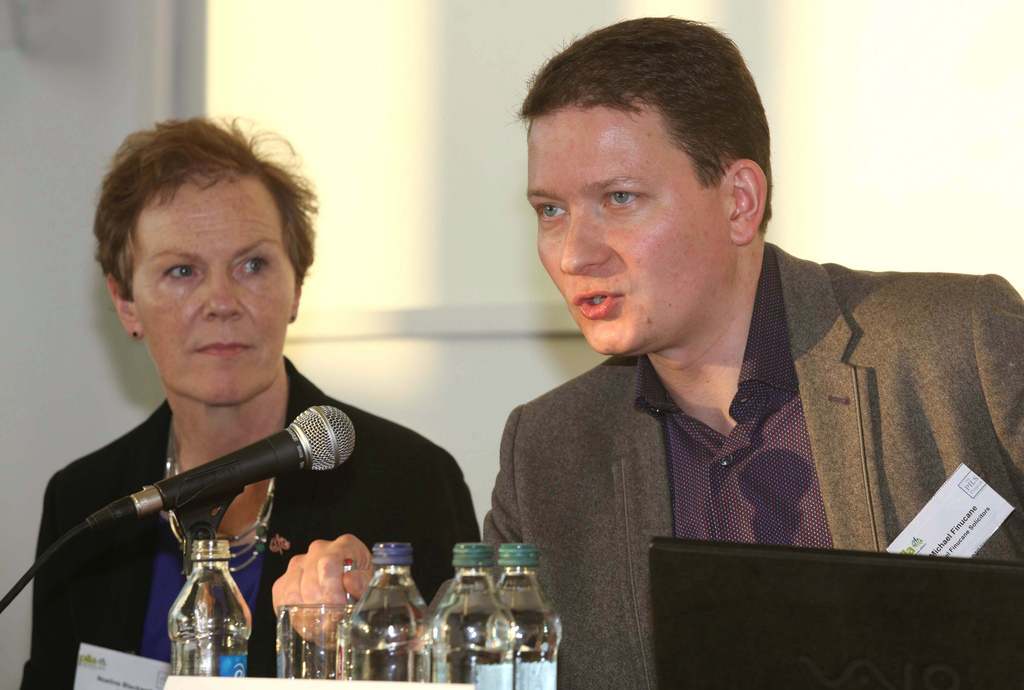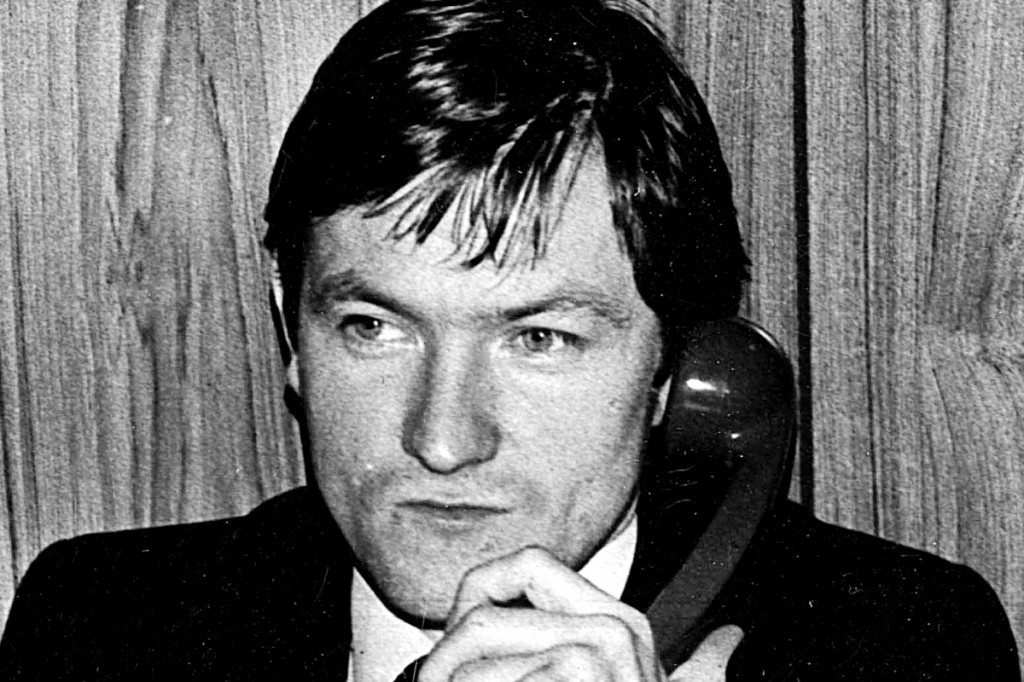A controversial proposal by Northern Ireland’s attorney general that no further prosecutions should be brought in relation to crimes committed during the Troubles has been roundly rejected by politicians, victims’ families and human rights groups.
It was was reported in the Belfast Telegraph on Wednesday that attorney general John Larkin said there should be a halt to all probes into offences carried out before the signing of the Good Friday Agreement in 1998. Larkin said he believed that government papers should be released to victims of violence and to historians, who would be protected from libel claims if reported in good faith.
“We need to bring to an end the prospect of inquests with respect to Troubles-related deaths. No more inquests and no more prosecutions with respect to Troubles-related deaths. Going hand in hand with that would be a commitment to developing ways in which access to State records can be facilitated consistently with the safety of individuals.”
John Larkin
The attorney general went on to say that he had met with US diplomat Richard Haass, who is reviewing how Northern Ireland should deal with the past. The idea floated is that there would be no further police or legal investigation of any events prior to the signing of the Good Friday Agreement in April 1998.
“What I am saying is take the lawyers out of it. I think lawyers are very good at solving practical problems in the here and now, but lawyers aren’t good at historical research,” Larkin said.
Amnesty International has called it “an utter betrayal of victims’ fundamental right to justice”. David Cameron told the Commons that it would be “rather dangerous” to block possible future prosecutions. “I do think it’s important to allow Richard Haass to do his work about parades, about flags, and about dealing with the past,” he said. “Clearly the dealing with the past part is the most difficult of the three and the most difficult to unlock.”
But David Davis, the former Conservative shadow home secretary, backed Larkin. “For Northern Ireland, the path to lasting peace lies in looking to the future, not raking up the past,” he said.
_________________________________________________________
 Interview with Michael Finucane
Interview with Michael Finucane
‘The conflict in the North went on for 40 years. It will probably take as long to deal with everything that happened.’
“We just don’t know where John Larkin’s coming from on this,” begins Michael Finucane, a Dublin-based solicitor specialising in human rights. Michael is also the son of Pat Finucane, the murdered civil rights lawyer. In 1989 Douglas Hogg, then junior home office minister, told the House of Commons that some solicitors in Northern Ireland were “unduly sympathetic to the cause of the IRA”. Michael Finucane has described these words as “a verbal hand grenade lobbed into the cauldron of Northern Ireland”. Thanks to Free Legal Advice Centres for the pictures.
Three weeks later, two gunmen from the Ulster Freedom Fighters burst into the family’s Belfast home, wounding the lawyer and his wife, Geraldine. One gunman stood over him as he lay on the ground and fired 14 shots into his body and head. Michael, then 17, was in the house with his brother and sister.
The Finucane family is still trying to find out why their father was targeted and whether the government was involved in the killing. At the end of last year the prime minister David Cameron said he was “deeply sorry” after the findings of the Da Silva report highlighted the extent of state collusion in the murder but refused to grant an inquiry.
Solo run
“Initially we thought that John Larkin was flying a kite for some political mandarin, to test the waters,” Michael Fincane says; adding that “that theory has been rejected by a number of commentators on Northern Ireland News affairs”. “It seems quite possible that he’s going off on a solo run.”
Isn’t it right to draw a line at some point under historic crimes? “Everything Larkin says about old prosecutions is correct. Yes, they are difficult to bring. The passage of time affects the availability of witnesses and the quality of witnesses’ memory if they are available. Evidence gets lost, and sometimes it was never sought in the first place.”
“My Dad’s case would be one such case,” the lawyer continues. “The initial police work was way below standard even for time. But even in cases where, some 30 years’ on, there is no realistic prospect of a successful prosecution being brought, the public is uncomfortable with his notion of an amnesty.”
“The only thing that you can do is to approach the issue on a case-by-case basis. Where it is decided in an individual case that there is ‘no realistic prospect of success’, to use the Director of Public Prosecution’s standard, you have to say that you are not going to prosecute. And that’s where the matter rests.” But Finucane, who is chair of the Law Society of Ireland’s human rights committee, adds that there is a legal obligation under the European Convention on Human Rights to provide explanations in circumstances where in a fatal case no prosecution has resulted.
The day after the controversial Larkin interview, a report was published which reckoned that dealing with Northern Ireland’s past was costing its criminal justice agencies ‘more than £30 million a year’. Brendan McGuigan, chief inspector of criminal justice in Northern Ireland, reckoned that the estimated costs could exceed £187 million in five years’ time. A senior member of the Northern Ireland Bar Library told a Press Association reporter that Larkin’s proposal was “a very brave thing for him to do”. “Think of the law firms making money, hand over fist, out of tribunals, inquests, the courts. They’re just milking the system dry.”
“You are never going to see a straight return for your money,” says Michael Finucane. “What you are measuring is the future stability of society, and that’s a social project. I would argue it is a very necessary social project.”
“Despite my family’s campaign for a public inquiry into my dad’s murder, I do not think every family needs or wants a full blown public inquiry. They need something. At the moment what’s filling the void is the grassroots work of a number of NGOs, doing the best that they can do on a shoestring budget, and the violent reprisals from anti-agreement paramilitaries.”
Michael Finucane
The lawyer calls Saville Inquiry into Bloody Sunday, which cost taxpayers £195 million, “the stick to beat everyone with”. “It is not comparing apples and oranges,” he says. “It is apples and footballs. Bloody Sunday was investigating a 30-year-old offence with no underpinning research, starting from scratch.”
Nor, Finucane points out, are these issues restricted to Northern Ireland. “Today is the 39th anniversary of the Birmingham pub bombings,” he points out. The lawyer has just taken part in a local radio debate about the attacks in which 21 people were killed as a result of blasts at The Mulberry Bush and the Tavern in the Town.
The Justice for the 21 campaign is calling for its own inquiry but so far its an online petition attracted just over 3,000 signatures. It needs 100,000 to be eligible for a debate in the House of Commons. “That was the conflict in Northern Ireland spilling over into Britain,” says Finucane. “It affects people much more directly than some remote case in Belfast might be said to affect them. Yet it still is not being given the support it needs or deserves. The will is not there to address something that clearly needs to be addressed.”
Finucane mentions the way that Hillsborough campaign has galvanised public and political support – in particular, ‘the electrifying footage’ of Andy Burnham, the former sports minister, feeling the full force of anger from a 30,000-strong crowd at Anfield calling for ‘Justice’ at the 20th anniversary of the disaster in 2009. “He wasn’t just looking at a football stadium. He was looking at 30,000 votes. Generations of people saying: ‘We will never cast a vote for you. Forget about Liverpool.’”
“In a sense the Hillsborough families have achieved their objective. They needed to be a political priority. The way the issue of the past in Northern Ireland has been thought out has been very poor. Once the government had the Good Friday agreement signed up and the assembly set up, it was a question of: let’s move on. The conflict in the North went on for 40 years. It will probably take as long to deal with everything that happened.”
Michael Finucane
What about the prospects of an inquiry in the death of his father? Finucane reports that the campaign is “bogged down in court proceedings unfortunately”. The family is seeking to challenging the government’s decision not to have an inquiry in the High Court in Belfast.







